Hippo guffawing and chomping grass
Hippo – they’re big, fat, kind of funny, and of course incredibly dangerous. A well know fact is that they are responsible for the most human deaths by a mammal within Africa. Being herbivores feeding on a diet of grass, that says a lot about how moody they are. Hippo’s have been observed chasing predators such as lion away from a fresh kill of a hapless antelope, for no apparent reason other than the hippo simply taking offense with the big pussycats chewing on the flesh of other species.
The above compilation was recorded during a single recording session lasting from dusk till dawn, with the mics set up next to a big lake within Stanley & Livingstone private game reserve (Victoria Falls, Zimbabwe). While I’ve recorded a few more nights at this location, never were the hippo’s as vocal as during this particular night.
Their signature sound is a deep, resonant thundering guffaw and can be heard plenty of times in these snippets. While this conveys the image of a very relaxed and good humoured animal, this call is generally associated with territorial and potentially aggressive behaviour. Not only do hippo “laugh” to tell others who is the boss, they are also known to spray excrement all over each other as another display of dominance. As they also produce these dung showers to mark their territories, I am grateful that so far no hippo has taken offence with my recording equipment.
When it comes to sound recording hippo, one thing I have no had the chance to try yet is using hydrophones. Surprisingly enough, their closest relative is the whale, and as such hippo are equipped to both produce and listen to sounds underwater. They are in fact the only known animal in the world that can call & listen to airborne and underwater sounds simultaneously, which is quite remarkable from a physics point of view. They have a flap of fat under their jaw which has roughly the same density as water, allowing them to transmit their guffaws and calls not just above the water surface but also underneath it. And just like their whale cousins, they can listen to underwater sounds using their jaw bones. It is thought that a hippo therefore can judge the distance of another by measuring the delay between the incoming underwater and airborne components of a single call.
While hippo are pretty large, they eat relatively little, settling for roughly 35-40kg of grass in a day. But as the recording above indicates, they do certainly seem to enjoy their diet, evident by the enthusiastic, non-stop tearing and chomping of grass.

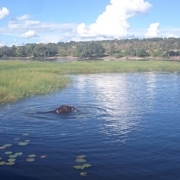

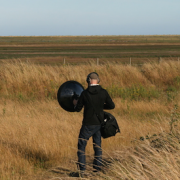
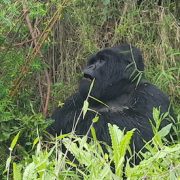


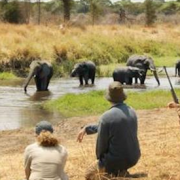
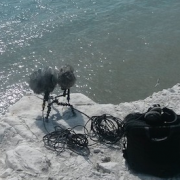



cute!
Leuk Daan en informatieve toelichting. Ik kreeg honger van het tweede fragment…